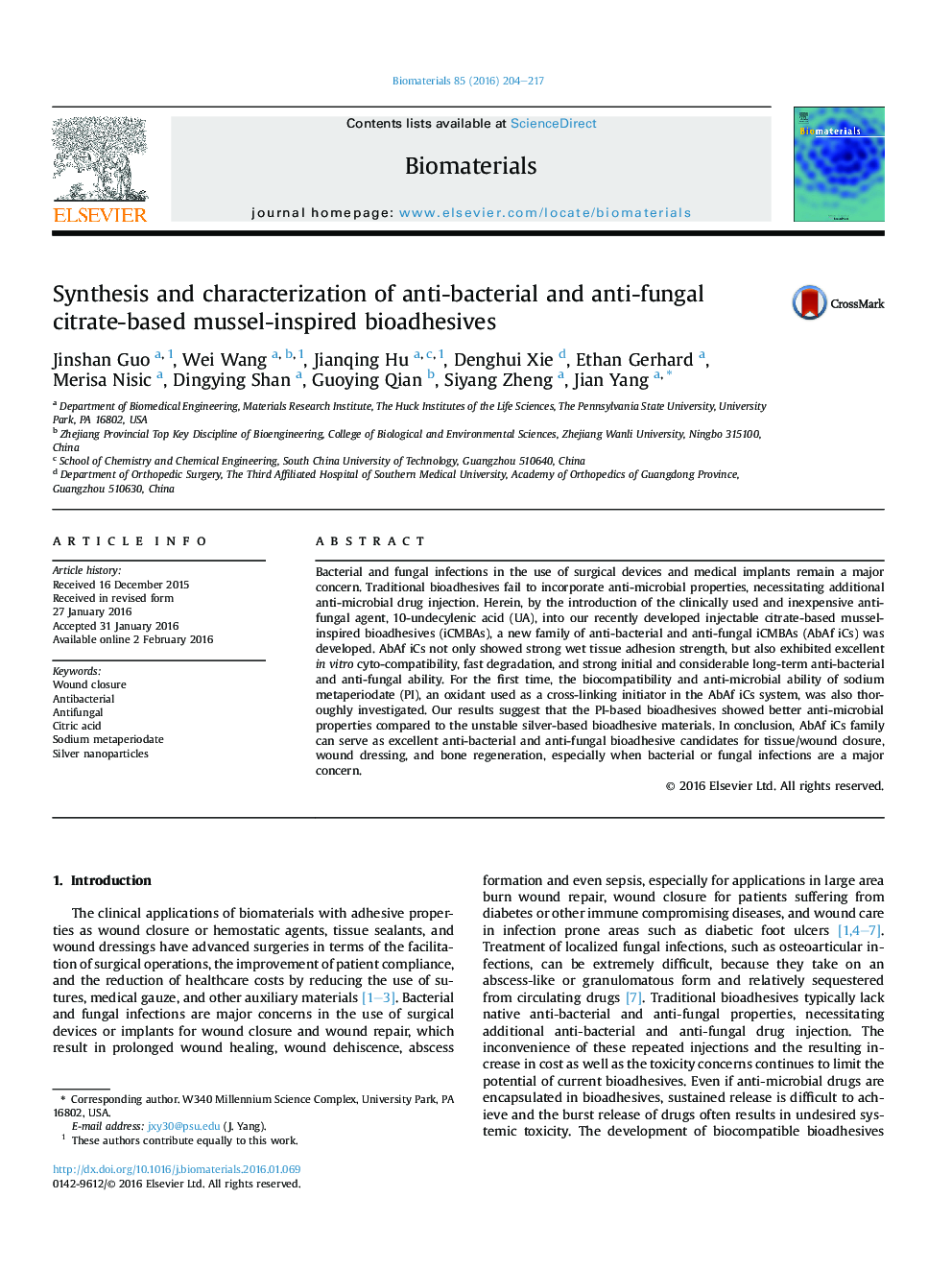| Article ID | Journal | Published Year | Pages | File Type |
|---|---|---|---|---|
| 6485060 | Biomaterials | 2016 | 14 Pages |
Abstract
Bacterial and fungal infections in the use of surgical devices and medical implants remain a major concern. Traditional bioadhesives fail to incorporate anti-microbial properties, necessitating additional anti-microbial drug injection. Herein, by the introduction of the clinically used and inexpensive anti-fungal agent, 10-undecylenic acid (UA), into our recently developed injectable citrate-based mussel-inspired bioadhesives (iCMBAs), a new family of anti-bacterial and anti-fungal iCMBAs (AbAf iCs) was developed. AbAf iCs not only showed strong wet tissue adhesion strength, but also exhibited excellent in vitro cyto-compatibility, fast degradation, and strong initial and considerable long-term anti-bacterial and anti-fungal ability. For the first time, the biocompatibility and anti-microbial ability of sodium metaperiodate (PI), an oxidant used as a cross-linking initiator in the AbAf iCs system, was also thoroughly investigated. Our results suggest that the PI-based bioadhesives showed better anti-microbial properties compared to the unstable silver-based bioadhesive materials. In conclusion, AbAf iCs family can serve as excellent anti-bacterial and anti-fungal bioadhesive candidates for tissue/wound closure, wound dressing, and bone regeneration, especially when bacterial or fungal infections are a major concern.
Related Topics
Physical Sciences and Engineering
Chemical Engineering
Bioengineering
Authors
Jinshan Guo, Wei Wang, Jianqing Hu, Denghui Xie, Ethan Gerhard, Merisa Nisic, Dingying Shan, Guoying Qian, Siyang Zheng, Jian Yang,
